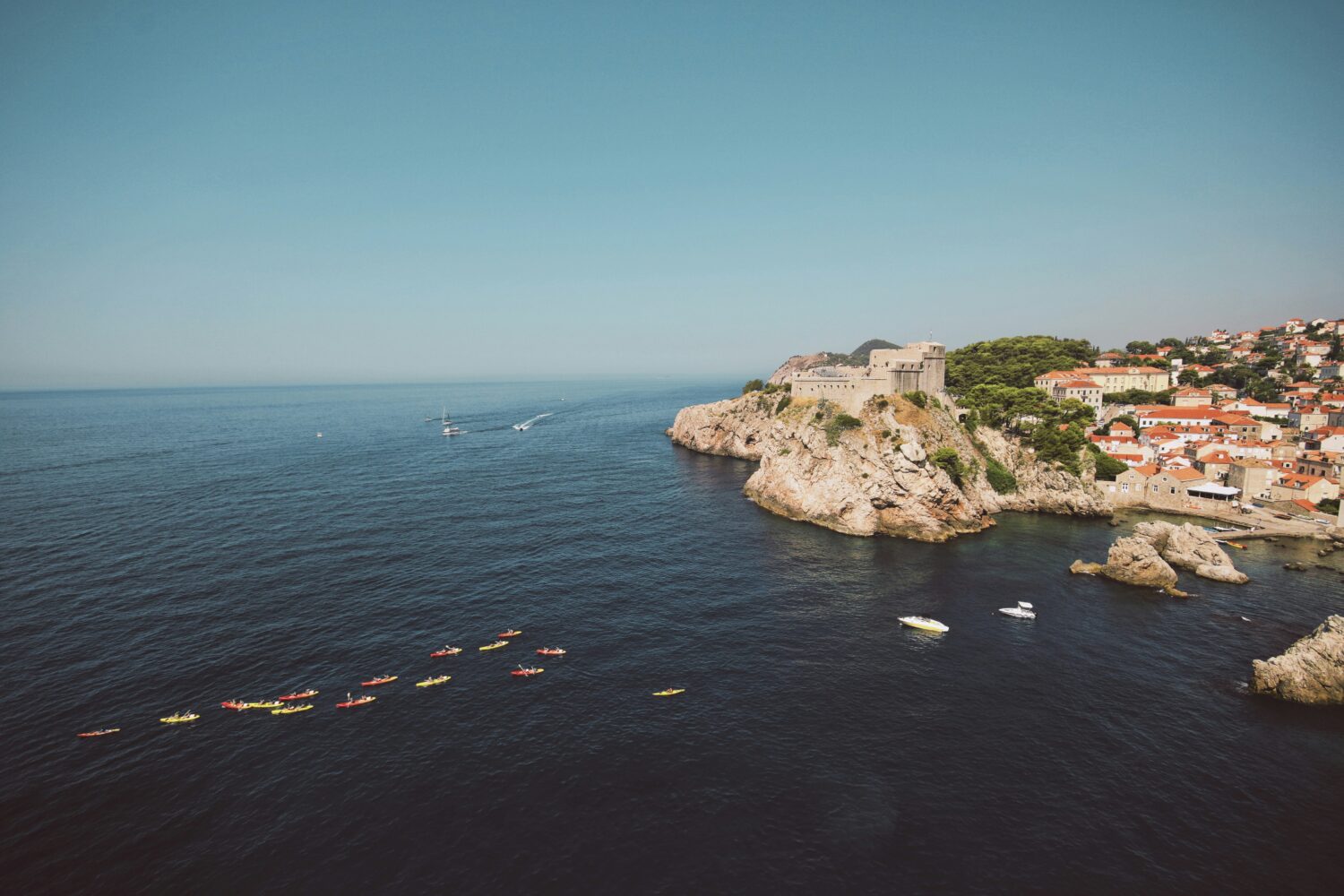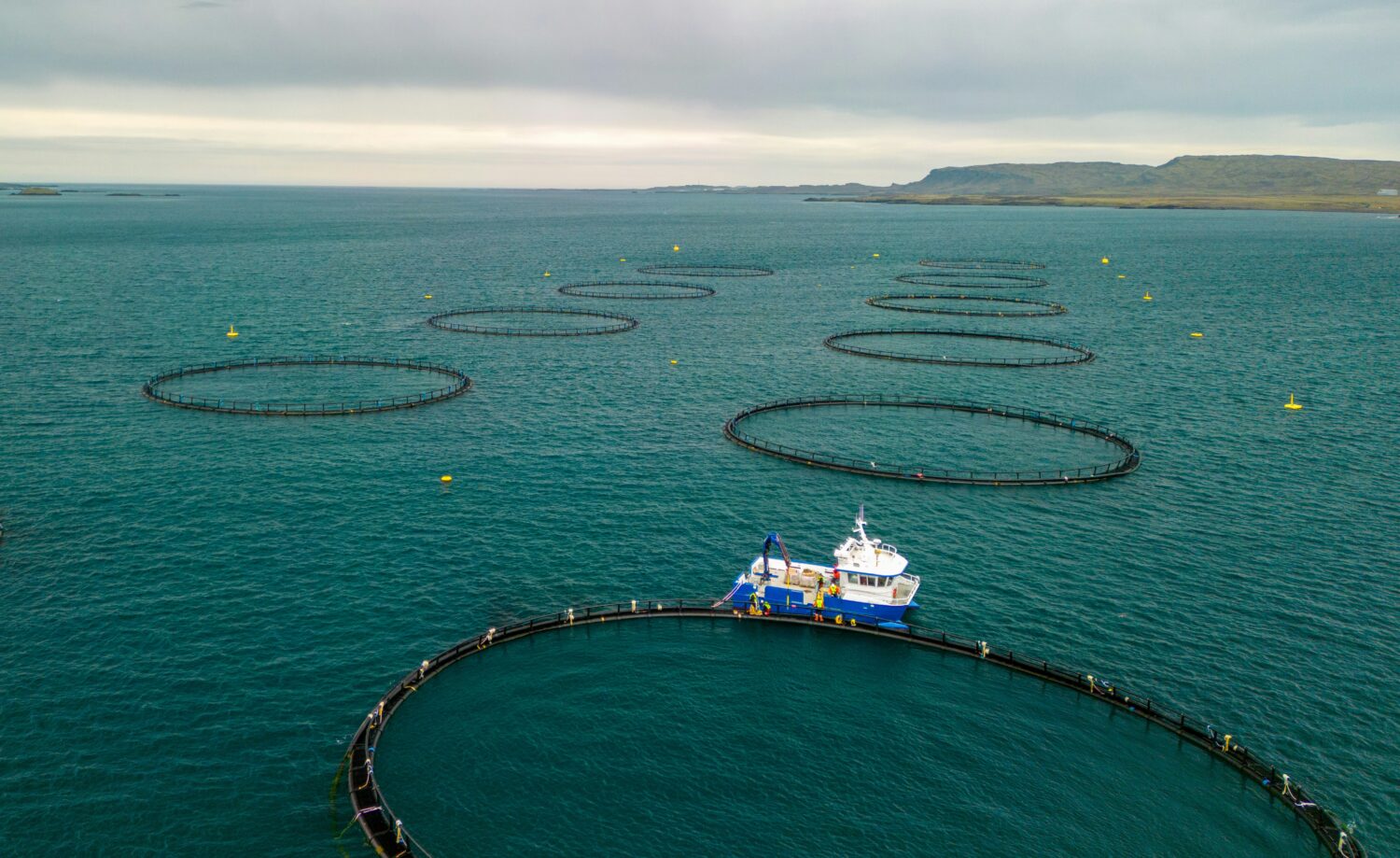Author: Diesis Network
When we talk about making our world sustainable, our minds often jump to images of lush green landscapes, wind turbines gracefully turning on hillsides, vast solar farms soaking up the sun’s energy in the desert, or baskets overflowing with organic produce at bustling local markets. This ‘green economy’ has become a familiar, almost iconic, symbol—a quick way to refer to the vital shift we desperately need to make. But here’s the thing: our future won’t truly be green unless it embraces the blue. The ‘blue economy,’ a concept that extends far beyond just our oceans, is arguably the most potent, yet often overlooked, piece of this crucial puzzle, presenting a wealth of opportunities for small and medium-sized enterprises (SMEs) across Europe.

At first glance, when someone mentions the ‘blue economy,’ many people’s thoughts might drift to fishing boats or those towering offshore wind farms. And yes, those are certainly part of it. But the reality is so much broader, richer, and more intertwined with our daily lives than you might imagine, touching both land and sea. It’s in the cosmetics we smooth onto our skin, the packaging that keeps our food fresh, the energy that powers our homes, the holidays we enjoy by the sea, and the vibrant communities that thrive along our waterways and shores. The blue economy encompasses everything from aquaculture and biotechnology to conservation efforts, tourism, and cutting-edge digital innovation. Its influence stretches inland to agriculture and reaches even cities far from the coast. Its scope is immense, and its potential for European SMEs is truly staggering.
What makes this whole concept so incredibly exciting is that many activities already happening all around us, things we don’t typically label as ‘blue,’ are actually very much a part of this growing movement. Think about a farmer in Andalusia, for instance, who’s using an algae-based fertilizer on his fields—he’s directly benefiting from the blue economy. Or a restaurant in Brussels that can track its seafood digitally from the moment it’s caught until it lands on your plate—they’re actively participating in it. Even a group of women in Galicia, dedicated to keeping the ancient art of net-making alive, are contributing to the blue economy. These aren’t abstract, far-off ideas; they’re tangible, practical examples that are already reshaping how we live and work.

Take the inspiring journey of Futuralga, a cooperative nestled in Andalusia. For ages, algae was just seen as a nuisance—something smelly that washed up on beaches, utterly useless. But Futuralga has completely flipped that perception on its head. Through clever biotechnology, they’re transforming seaweed into natural fertilizers for farms, valuable ingredients for cosmetics, and even raw materials for green chemistry. The benefits are crystal clear: seaweed doesn’t need fresh water or fertilizers to grow, and it actually soaks up carbon as it thrives. What was once considered a problem has now become a brilliant solution. And it’s not just a win for our oceans; it’s a win for farmers, for various industries, and ultimately, for our entire planet.
Technology, as you might expect, plays a pivotal role in this incredible transformation. Over in Galicia, a start-up called Xpander is brilliantly demonstrating how digital tools can revolutionize entire value chains. By applying blockchain technology to seafood supply chains, they’re making every single step transparent, from the exact moment a fish is hauled in to the second it arrives on your dinner plate. This means consumers can feel more confident about what they’re eating, and producers who play by the rules gain the recognition they deserve. The whole system, in turn, becomes fairer and much more sustainable. This kind of transparency isn’t just a minor technical upgrade; it’s a genuine revolution in trust and accountability.
Another Spanish company, EonSea, perfectly illustrates how the blue economy and digital innovation are truly inseparable. They specialize in the smart inspection of underwater infrastructure, things like pipelines and offshore platforms. In the past, checking on these structures was expensive, risky, and often not great for the environment. But with EonSea’s cutting-edge technology, these inspections become safer, more affordable, and incredibly precise. This helps prevent accidents, protects delicate ecosystems, and allows industries to operate with far greater responsibility. Once again, it’s clear that technology isn’t replacing tradition; it’s making it stronger and more resilient than ever.
But let’s be clear: the blue economy isn’t just about flashy start-ups and high-tech gadgets. Some of the most truly inspiring examples come from deep-rooted tradition, rich culture, and strong community bonds. In Galicia, for instance, the Asociación de Rederas O Fieital de Malpica represents generations of women who have dedicated their lives to making fishing nets. Their work is a living testament to how ancient crafts can discover a vibrant new purpose within the blue economy. By connecting their invaluable skills to modern markets and aligning with today’s sustainability goals, these women are not only creating much-needed jobs and preserving a vital cultural heritage, but they’re also championing gender equality in regions where opportunities can often be scarce. Their story is a powerful reminder that the blue economy isn’t solely about technology or making a profit; it’s profoundly about people, identity, and ensuring everyone is included.
In Andalusia, the Deep Core Project by Coral Soul offers another fascinating perspective, beautifully weaving together science, conservation, and genuine social engagement. Their core mission is to restore precious coral ecosystems, which are currently under immense pressure from the relentless march of climate change. But they don’t tackle this monumental task in isolation. Crucially, they involve local communities, young people, and groups who have historically been underrepresented in the process. Here, conservation isn’t just an environmental obligation; it’s a profound social mission. It fosters a sense of pride, belonging, and active participation. It truly shows that the blue economy is as much about strengthening our social fabric as it is about nurturing our natural ecosystems.
These stories, compelling as they are, aren’t unique to Spain. All across Europe, innovative thinkers are experimenting with fresh approaches to link the blue economy with its green and agricultural counterparts. In Italy, for example, cooperatives are skillfully cultivating edible seaweed and shellfish in ways that actually help regenerate ecosystems, all while providing inland farmers with incredibly nutrient-rich fertilizers. Over in France, near Marseille, start-ups are busy developing floating sensors that can measure water quality in real-time, giving aquaculture farmers and local municipalities the precise data they need to safeguard resources and plan more effectively. And in Greece, social enterprises are embracing digital platforms to guarantee that seafood is caught sustainably and traded fairly, thereby strengthening the beloved Mediterranean diet and empowering small-scale fishers.
When you consider all these initiatives together, it becomes abundantly clear that the blue economy isn’t some niche concept or a mere side project. It’s a powerful European movement, a fundamentally new way of thinking about sustainability that intricately connects our oceans and rivers to agriculture, energy production, food systems, and even social innovation. The blue economy isn’t separate from the green economy; in fact, it’s its most natural and essential partner. Farming practices on land directly influence the health of our rivers and seas, while groundbreaking marine innovations—like those algae-based fertilizers or novel bioplastics—are, in turn, transforming agriculture inland. Tourism, conservation efforts, cutting-edge technology, and time-honored tradition all beautifully converge in this dynamic space.
For businesses, this isn’t just some abstract environmental concern. It’s a massive strategic opportunity, plain and simple. The demand for sustainable products is skyrocketing. Consumers today want transparency, they want responsibility, and they want to see real impact from the companies they support. Digital platforms have made it easier than ever to reach these eager markets. Public institutions are pouring significant investments into marine and coastal innovation. And small enterprises, agile start-ups, and collaborative cooperatives are already demonstrating that it’s entirely possible to innovate, scale, and truly thrive in this exciting new arena. The blue economy isn’t some far-off future concept—it’s happening right now. The only real question is which companies will be smart enough to recognize its immense potential in time.
This very conversation is set to continue in Brussels on September 23rd and 24th, 2025, at the Bluedots Living Lab, aptly titled: “Blending Blue and Green for Real Sustainability.” For two full days, entrepreneurs, cooperatives, and policymakers will gather to share their experiences, showcase their latest innovations, and forge powerful new alliances. The goal is straightforward yet incredibly ambitious: to explore how blue and green initiatives can mutually reinforce each other, with digitalization acting as a powerful catalyst.
Our oceans, covering more than two-thirds of our planet, still have their crucial role in sustainability vastly underestimated. The blue economy invites us to look at them in a completely different light—not as barriers, but as vital bridges. In every algae-based fertilizer spread across a field, every blockchain-verified fish that lands on a menu, every coral reef lovingly restored by local communities, and every intricate net woven by the skilled Galician women, we can clearly see the emerging outlines of the future. A future that isn’t just green, but profoundly blue. And for those businesses brave enough to take the leap, the time to act is unequivocally now. The tide is indeed rising, and those who choose to move with it will be the ones who truly shape tomorrow.

